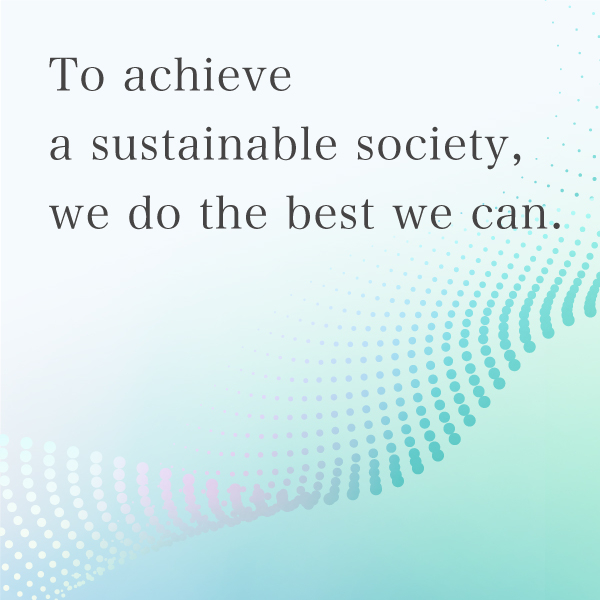HOME > Corporate Profile > Environmental Activities
Environmental Activities


RISO‘s Basic Policy for Environmental Conservation
We clarify our commitment and promote company-wide activities to preserve the environment.
Low Carbon
We contribute to realizing a low-carbon society by promoting energy-saving activities in our business and developing and manufacturing environmentally friendly products, which will be widely available to our customers.
Resource Circulation
In our view " Used products are not wastes but precious resources," we promote the collection and recycling of used products.
Safety Management
We comply with global chemical regulations. We also have established the “Riso Kagaku Group Green Procurement Standard” in order to procure parts and raw materials with low environmental impact.
Living in Harmony with Nature
We continue to make great efforts to live in harmony with nature in order to realize a society where humans and nature can maintain a good relationship.
Efforts for SDGs
We contribute to the SDGs in three aspects:Economy, Society, and Environment.
Environmental Data
Environmental Data
Guideline Comparison Table
Current Status of Acquisition of ISO14001 and ISO9001
We list our Works certified with ISO14001 and ISO9001.
Others
Back issues of "Support for Environmental Learning," "Sustainable Report (past publications)," and "History of Environmental Activities" are posted.
